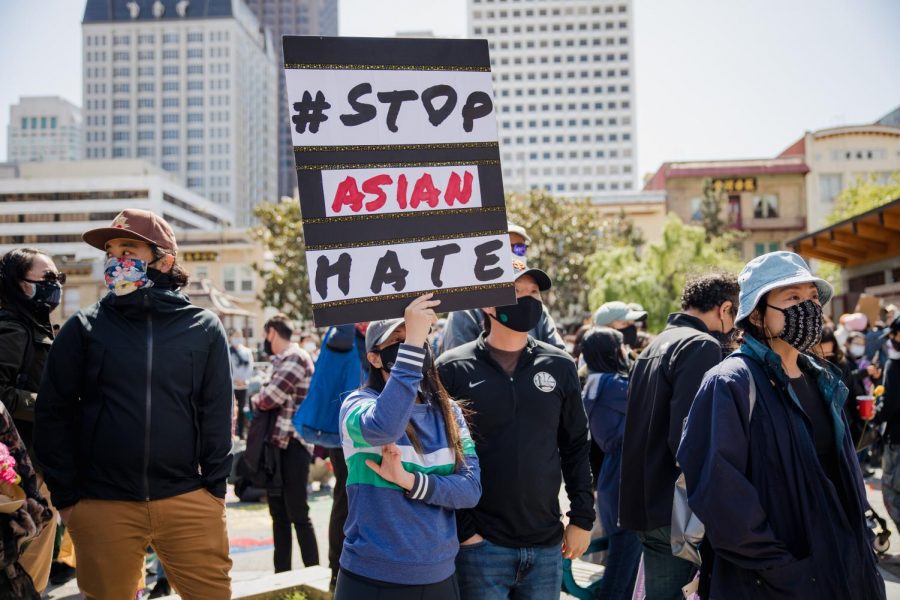OPINION: Harmful rhetoric to blame for uptick in anti-AAPI hate crimes
The recent uptick in anti-AAPI violence follows a similar pattern to the rise in anti-Muslim violence following the 9/11 attacks.
Hate crimes have always been a relevant issue, but it’s often overlooked that there appears to be a pattern regarding how and when hate crimes occur. If we look at history over the years, hate crime rates spike significantly when negative attention towards a particular country or ethnicity rises. For example, hate crimes against Muslims increased significantly after the 9/11 terrorist attacks due to the negative portrayal of Muslims in the media.
This pattern should definitely be taken into account when considering the recent attacks and discrimination against Asians and Asian-Americans. To say that there is no connection between the pandemic and an increase in anti-Asian discrimination would simply be ignoring the facts of the situation and current events.
On March 16, an armed shooter killed eight people across three spas in the Atlanta metropolitan area (six of those killed were Asian women).. The disproportionate number of Asian women killed in this tragedy have led many to look at the incident as a hate crime. Whether or not there was a direct racial motivation in these attacks was unknown, and the anti-Asian discrimination group Stop AAPI Hate called the event an “unspeakable tragedy.”
Stop AAPI Hate also stated that the Asian-American community has “been reeling from high levels of racist attacks,” as this is not the first anti-Asian attack to occur since the pandemic began. The American Journal of Public Health highlighted several shootings in Georgia that killed six women of Asian descent.
Stop AAPI Hate was formed to highlight anti-Asian discrimination since the coronavirus pandemic began, with anti-Asian rhetoric being increasingly spread throughout the media. Whether or not the attacks were racially motivated, the anti-Asian discrimination increasing since the pandemic began has certainly not helped. For example, Donald Trump’s tweet calling COVID-19 a “Chinese virus” is suspected to have promoted an increase in anti-Asian racism on Twitter.
Assistant professor of epidemiology at The University of California in San Francisco Dr. Yulin Hswen has weighed in on the subject.
“Anti-Asian sentiment depicted in the tweets containing the term ‘Chinese Virus’ likely perpetuated racist attitudes and parallels the anti-Asian hate crimes that have occurred since,” Hswen said.
Groups like Stop AAPI Hate are important to highlight increasing hate crimes and racial tension in the United States, and the beginning of the pandemic definitely contributed to the rise in anti-Asian discrimination. There is clearly a connection that should not be ignored, as the pattern of when hate crimes against Asian people increase is being followed in this circumstance as well. This makes it more important than ever to combat the rhetoric being told by the general public, the media and even politicians.

I'm Isabella Bass, and I'm a junior Writing and Rhetoric major with a concentration in Journalism and Digital Media. I've lived in Austin my whole life,...







